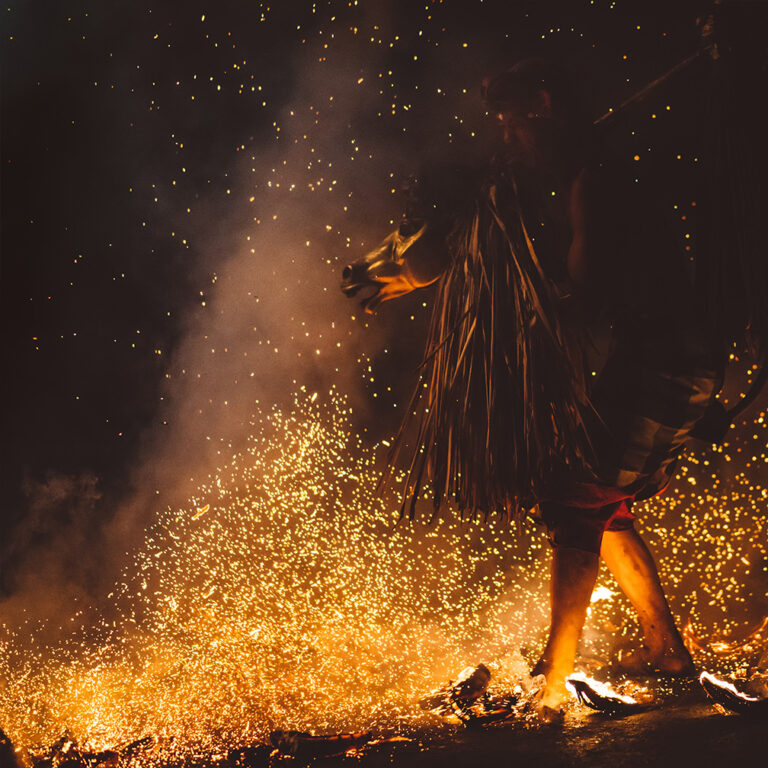Rites of passage have been the punctuation marks for the human experience for millennia, marking key life transitions and milestones with cultural, spiritual, and social significance. These ceremonies offer a way for each of us to feel connected to our communities, our ancestors, and our sense of self.
Rites of passage are ceremonies or rituals marking important stages and transitions in our lives—births, puberty, marriage, and death. Many indigenous and ancient cultures practiced elaborate rites to celebrate these transitions.
They serve us because they:
—Help us GROW psychologically and emotionally — creating and holding safe space for us to to recognise, transition to, and integrate, the new roles, responsibilities, and identities of the next stage of our life journey.
—CONNECT us — Reinforcing our connection to ourselves and our community by acknowledging, integrating and celebrating the roles that we play.
—HOLD us in continuity — Rites are often connected to cultural myths, spiritual beliefs, and traditions that offer us a deep sense of belonging and strengthen our spiritual and/or cultural bond, our shared experience of the past.
We are global citizens with multiple belief systems and a fusion of lifestyles which by nature dilutes traditional customs and common anchors. Religious practice is diminishing along with the sacred rituals. Our focus on personal achievement and independence reduces the role of community and collective acknowledgment in an individual’s life transitions. Many of these traditional rites of passage have lost their meaning, been diluted, abandoned, or transformed into commercialised superficial events.
Some of the most significant life transitions, like entering adulthood or becoming a parent, are marked not by culturally rich rituals but by consumerist events like a prom or a baby shower. These events of course carry social significance, but they lack the depth and spiritual guidance once inherent in rites of passage. As a result, many individuals may feel adrift during key life stages, lacking the symbolic guidance and community support that rite of passage traditionally provided.
Reigniting ceremonial rites of passage, both in traditional and non-traditional forms holds the potential to address this cultural void, providing individuals with a deeper sense of identity, purpose, and belonging¾crucial for the well-being of individuals and society as a whole. This is the invitation.
![]()
Bringing structure and meaning to transitions
Life transitions, especially adolescence to adulthood, are often fraught with uncertainty. Without clear markers or community validation, our young adults may struggle to navigate these changes. Formal rites of passage provide a framework for understanding these stages, offering guidance and recognition of new roles and responsibilities. In modern contexts, a well-designed rite can help individuals feel more grounded and self-aware, whether they are becoming adults, entering a new profession, or embarking on parenthood.
![]()
Fostering community connection
Rites of passage traditionally functioned as communal events that reinforced social bonds. In modern life, which can be highly individualistic and isolated, rekindling these practices can help bridge the gap between individuals and their communities. Whether it’s a traditional wedding or a more modern gathering marking a professional achievement, communal acknowledgment reinforces social cohesion. People feel a stronger sense of belonging when their community witnesses and supports their growth and transformation.
![]()
Encouraging personal reflection and growth
Rites of passage often include moments of introspection and self-exploration. In a fast-paced world, individuals may rarely take time to reflect on their personal growth or their evolving identity. Through formal or non-traditional rites, individuals can be encouraged to pause and assess their values, aspirations, and sense of self. This process fosters maturity and self-awareness, offering the psychological tools needed to handle life’s challenges.
![]()
Reaffirming cultural identity and continuity
In societies where cultural practices are being eroded, the reintroduction of rites of passage can serve as a means of cultural preservation. These ceremonies link people to their heritage, helping them to feel rooted in something larger than themselves. Revitalizing these practices can be especially important for marginalized or diasporic communities, allowing them to reclaim and celebrate their identities.
![]()
Non-traditional and modern rites of passage
In today’s diverse and dynamic world, it’s crucial to adapt the concept of rites of passage to modern contexts. While traditional ceremonies retain deep meaning, many people may not feel connected to or have access to those forms of ritual. Here are a few non-traditional and modern rites of passage that could serve important roles in contemporary society:
Professional transitions—For many individuals, career milestones are among the most significant transitions in life. Modern rites of passage could take the form of ceremonies or rituals to honour new career roles—whether it’s a first job, a promotion, or retirement. Companies could introduce communal rituals that celebrate individual milestones within their organisational culture, fostering a sense of belonging and collective achievement. These rites could involve symbolic gestures such as handing over responsibilities, mentorship ceremonies, or formalised farewells.
Coming-of-Age in the digital world—In a world where digital identities are increasingly important, a coming-of-age ceremony could reflect modern technology’s role in our lives. A digital rite of passage might involve a formal “declaration” of independence or responsibility within online communities. For instance, a young person’s first personal online account, a move to independent financial management through digital platforms, or even mastering a new coding language could be formalised through ritual. Communities could create ceremonies that recognise these achievements, blending the digital and real worlds to acknowledge personal growth.
Personal transformations and milestones—Many modern transformations are deeply personal and don’t necessarily align with traditional rites. Non-traditional ceremonies could be designed around personal journeys, such as recovering from illness, mental health achievements, or gender transitions. These rites might involve close family and friends, rather than large communities, focusing on deeply intimate and personal recognition. These events can help provide closure and a sense of new beginning, while also validating the individual’s journey and growth.
Environmental or civic engagement milestones—In an age of climate awareness and political activism, milestones related to environmental and civic engagement could serve as new forms of rites of passage. These ceremonies might celebrate an individual’s first time voting, joining an activist group, or volunteering for a social cause. Communities could recognise and celebrate these actions as important stages in personal development and civic responsibility. Such rites would not only benefit the individual but also reinforce a collective commitment to social and environmental stewardship.
![]()
Virtual and global community rites
Given the globalised world we live in, many individuals have deep ties to virtual or global communities. Online rites of passage could be adapted to the digital age, with virtual ceremonies celebrating key moments like completing a global initiative, hitting personal goals within an international project, or even forming lifelong connections online. These ceremonies could include global participants from diverse cultural backgrounds, further broadening the significance of the rite.

Reigniting rites of passage, both in traditional and non-traditional ways, is essential for modern society. These ceremonies offer meaning, structure, and community in a world that can sometimes feel fragmented and isolating. By creating new forms of ritual to honour personal, professional, and communal transitions, individuals and societies can regain a sense of connection and purpose. Whether through ancient traditions or modern adaptations, rites of passage remind us of the value of shared experience, growth, and the collective acknowledgment of life’s most important transitions.
I bring my Rites of Passage facilitation experience into all our ceremonial work, and joining forces with our amazing talented facilitator friends, we love to deliver bespoke private gatherings facilitating rites of passage – girl to woman, boy to man, birth, death, any major life events.
![]() In loving service
In loving service ![]()

